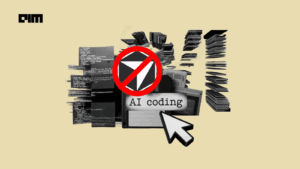IBM and Groq have announced a new technology and go-to-market partnership aimed at accelerating the deployment of enterprise AI at scale. The collaboration brings Groq’s high-speed inference platform, GroqCloud, directly into IBM’s watsonx Orchestrate, giving enterprise clients the ability to deploy agentic AI models that operate faster, more reliably, and at a lower cost.
The partnership centers around Groq’s Language Processing Unit (LPU), a chip architecture purpose-built for inference workloads. According to the companies, GroqCloud delivers more than five times faster inference speeds and significantly lower costs compared to traditional GPU systems.
This performance consistency is maintained even as workloads expand globally, a critical factor for clients operating in mission-critical sectors such as healthcare, finance, and retail.
Together, the companies aim to address one of the biggest enterprise challenges: bringing AI agents from proof of concept to real-world production. Many enterprise experiments stall at pilot stages due to latency, cost, or reliability constraints. The integration of GroqCloud with IBM’s watsonx Orchestrate provides the foundation for scalable, high-performance inferencing while maintaining enterprise-grade compliance and security.
Rob Thomas, IBM’s Senior Vice President of Software and Chief Commercial Officer, stated how the collaboration advances IBM’s broader AI strategy.
“Many large enterprise organizations have a range of options with AI inferencing when they’re experimenting, but when they want to go into production, they must ensure complex workflows can be deployed successfully to ensure high-quality experiences,” Thomas said. “Our partnership with Groq underscores IBM’s commitment to providing clients with the most advanced technologies to achieve AI deployment and drive business value.”
From Pilot to Production
The partnership is being positioned as a major step toward bridging the gap between experimental AI initiatives and full-scale enterprise operations. IBM and Groq plan to integrate open-source Red Hat vLLM technology with Groq’s LPU system, delivering improved inference orchestration, load balancing, and hardware acceleration.
IBM’s Granite models will also be made available on GroqCloud, broadening access to enterprise-grade foundation models optimized for performance and compliance.
This integration is particularly meaningful for enterprises in regulated and data-sensitive sectors, where accuracy, privacy, and speed are essential. IBM notes that healthcare clients, for instance, can use the joint solution to respond to thousands of incoming patient inquiries concurrently, applying AI to deliver precise, real-time information.
In retail and consumer goods, Groq’s performance boosts IBM clients’ HR automation and customer service AI agents, optimizing productivity while reducing response lag.
Groq CEO and founder Jonathan Ross highlighted how the technology synergy provides both immediate and long-term enterprise value. “With Groq’s speed and IBM’s enterprise expertise, we’re making agentic AI real for business,” Ross said. “Together, we’re enabling organizations to unlock the full potential of AI-driven responses with the performance needed to scale. Beyond speed and resilience, this partnership is about transforming how enterprises work with AI, moving from experimentation to enterprise-wide adoption with confidence.”
The alliance also marks IBM’s latest move to strengthen its AI ecosystem as competition intensifies in enterprise infrastructure. While NVIDIA remains the dominant name in AI compute hardware, Groq has built a reputation for its inference-specific performance advantages.
Industry observers view IBM’s partnership with Groq as an important signal that enterprises are looking for alternatives beyond traditional GPU-based systems to reduce cost and increase inference throughput.
By integrating Groq’s hardware acceleration capabilities into its watsonx platform, IBM extends its hybrid cloud and open AI model strategy. The watsonx Orchestrate platform, introduced as part of IBM’s “enterprise AI at scale” vision, streamlines the development of workflow-specific AI agents that can combine data insights, generative outputs, and automation.
The Red Hat open-source vLLM integration central to this partnership will also help developers adopt new AI models more easily. The companies said this will allow enterprises to leverage Groq’s high-throughput inference layer in familiar developer environments, reducing the friction in deploying complex models across hybrid systems.
According to IBM, this approach reinforces its “hybrid by design” philosophy, ensuring flexibility for firms managing sensitive workloads across on-prem, cloud, and edge deployments.
The companies are making GroqCloud capabilities available to IBM customers immediately, with co-developed features set to roll out over the coming months. This includes new capabilities in inference orchestration, workload scaling, and privacy-aware model execution.
“Speed, reliability, and actionability define the next generation of enterprise AI,” Ross added. “We’re combining Groq’s LPU innovation with IBM’s watsonx ecosystem to empower clients to move beyond experimentation and bring agentic intelligence to every workflow.”










